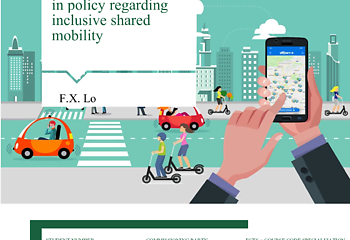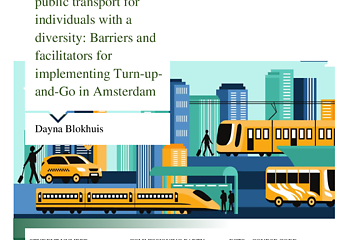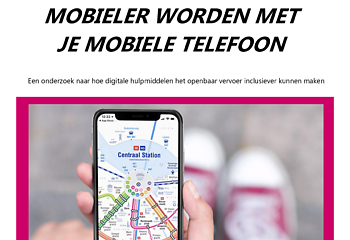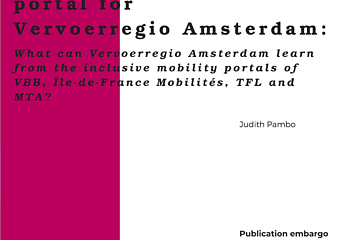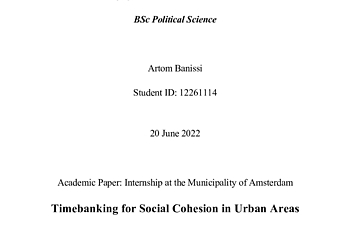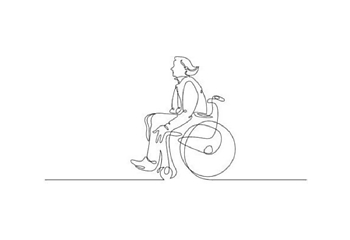In current society missing crucial capacities (like not being able to move, see, hear, understand, communicate, or moving, seeing, hearing, understanding, communicating less or differently) may lead too often to disadvantage and marginalisation. People that need to deal with this are: children who still develop their capacities, the elderly whose capacities decline and people who diverge mentally and/or physically. For these groups the city - consisting of public spaces, buildings, transport and information and communication facilities - is not organised and designed accessibly enough. In accessibility six aspects play a part: 1. personal capacities and disabilities and 2. the physical environment and the facilities in it need to match well. If however barriers and obstacles occur 3. a helping hand/assistance can offer a solution. About above mentioned aspects 4. extensive information needs to be available, so that people know where they stand. 5. people need to be able to communicate: customer service, user feedback, reporting and handling of complaints. Is 6. representativeness required in the sense that experiential knowledge of mental/physical diversity must be involved in designing and organising inclusive solutions. With all 6 aspects standardisation for accessibility and awareness of mental and physical diversity helps.
In this Knowledge Alliance Inclusive and Accessible City we strive for – by means of innovative, interdisciplinary research – the creation of new knowledge to establish an inclusive and accessible city in line with the aims of the UN convention on the rights of persons with disabilities so that a diversity of capacities can come into her own. We want to stimulate the introduction of measures that effectively enable people who are disabled by barriers to fully and respectfully participate in social life with their own unique contribution. As soon as accessibility is guaranteed and people are no longer restricted, social and cultural enrichment can take place. With the help of these researches students and researchers come in touch with working on inclusion and accessibility.

